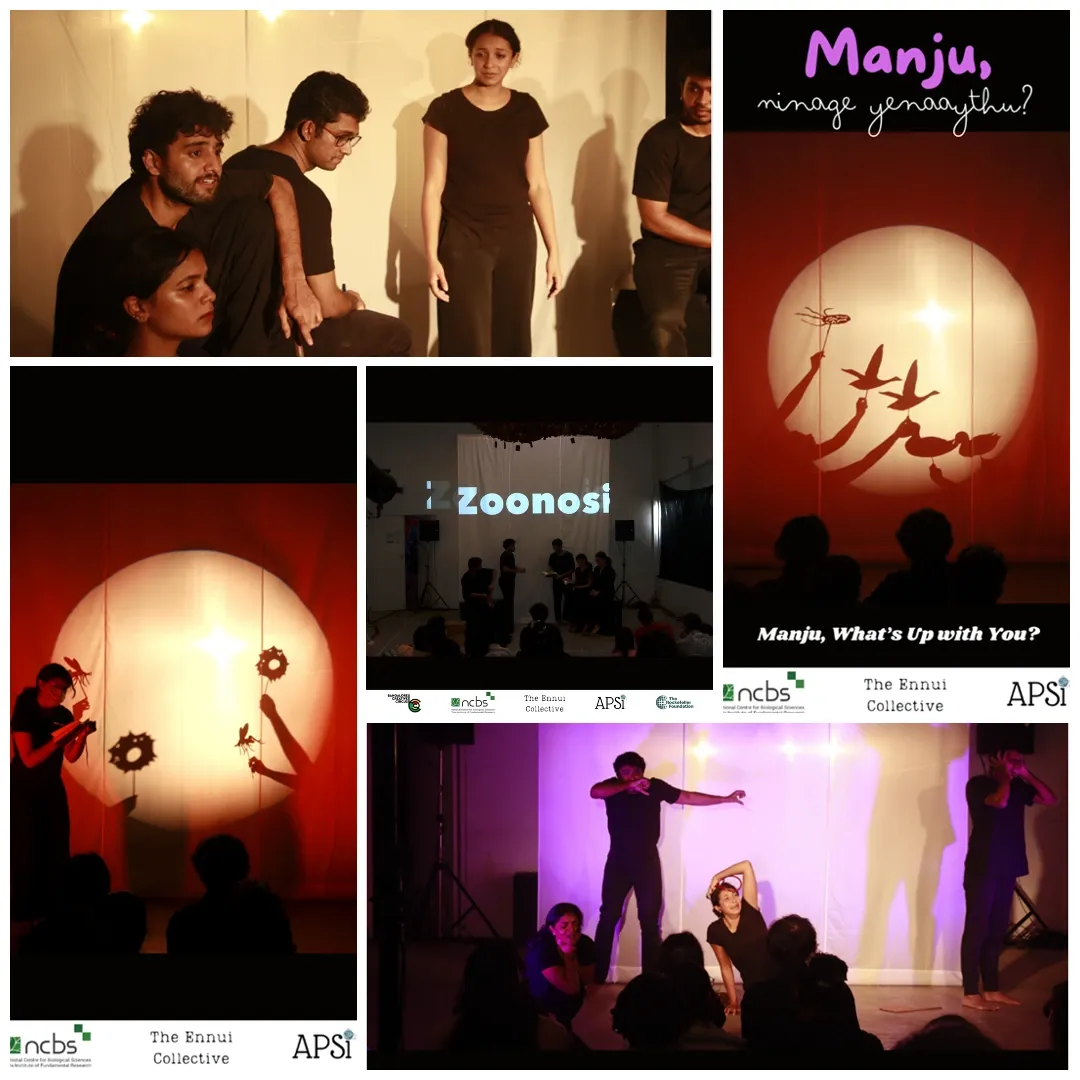
The recent collaboration between the National Centre for Biological Sciences (NCBS) Communications team, the theater group The Ennui Collective and the Rockefeller Foundation-Alliance for Pathogen Surveillance Innovations, RF-APSI-India led to the production of the play, ‘Manju, what’s up with you’.
The excellent cast of theater actors and scientific writing through the NCBS Comms team provided an engaging and informative peek into zoonosis, the concepts of disease outbreaks, diseases which jump from animals to humans, mosquito-borne diseases such as malaria, dengue, chikungunya, priority pathogens and the imminent public health due to the ever-rising antimicrobial resistance, AMR. The play had the perfect amalgamation of emotions, dialog delivery using both English and Kannada, use of imagery, recorded videos, crafts with shadow-art, and use of lightings to evoke the effect of each scene. With each topic covered, a combination of these theatrical modes paved way for the upcoming themes, keeping the audience engaged and at the edge of their seats, unifying with the stage actors’ characters! The play was hosted at the vibrant Bangalore Creative Circus and catered to audiences from all walks of life and across all age groups.
This collaboration is the first instance of a successful utilization of theaters as a mode of community outreach in the RF-APSI program.
During the 40 mins play, the premise lay open the platform for dialog, acknowledging the societal hesitation, fear of the unknown, clinicians’ dilemma in treat the patients, backlash from the community, communicable and infectious disease. To face this fear and come together as a joint front, community participation, collaborations amongst clinicians, scientists, public health workers, local municipal organizations, civic bodies and public health authorities is crucial. These are the founding principles of the RF-APSI consortium, which started off as surveillance platform to supplement the ongoing covid-19 surveillance during early 2021, when India was undergoing a huge public health crisis.
Pathogen surveillance strategies, tools and technologies are evolving and with the ongoing efforts across the RF-APSI consortium, novel molecular approaches are being charted for routine implementation, utilizing the environmental samples for wastewater-based epidemiology and rapid molecular diagnostic methods to understand disease mechanisms for clinical surveillance.
RF-APSI-India teams are currently working on making the standard operating procedures into sharable handbooks and is partnering with technology for surveillance platforms to manufacture low-cost, indigenized kits using local resources, thus adding to both efficiency and reducing the effective cost. Our current goal is to advocate for these SOPs and indigenized kits to be implemented into the existing public health surveillance programs, serving as early-warning system, to make India better prepared for future pandemics.
Outreach Lead: NCBS-Comms team and The Ennui Collectives